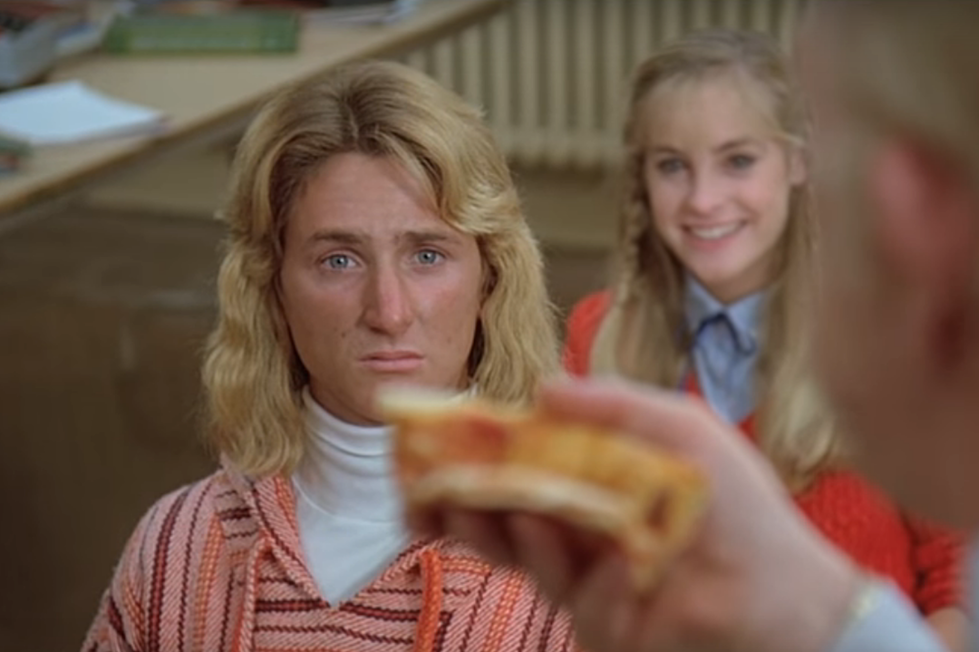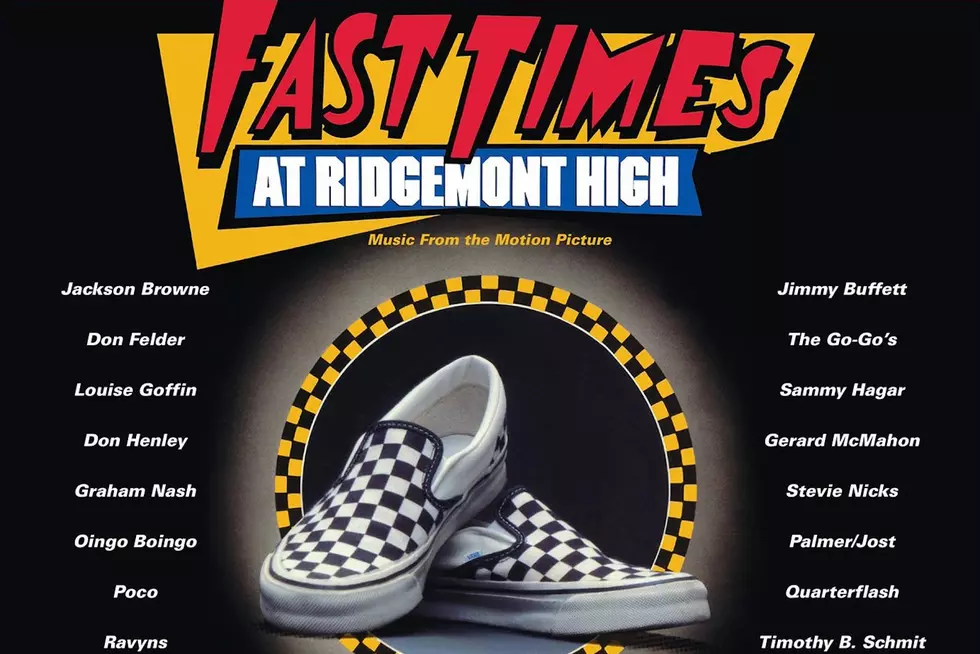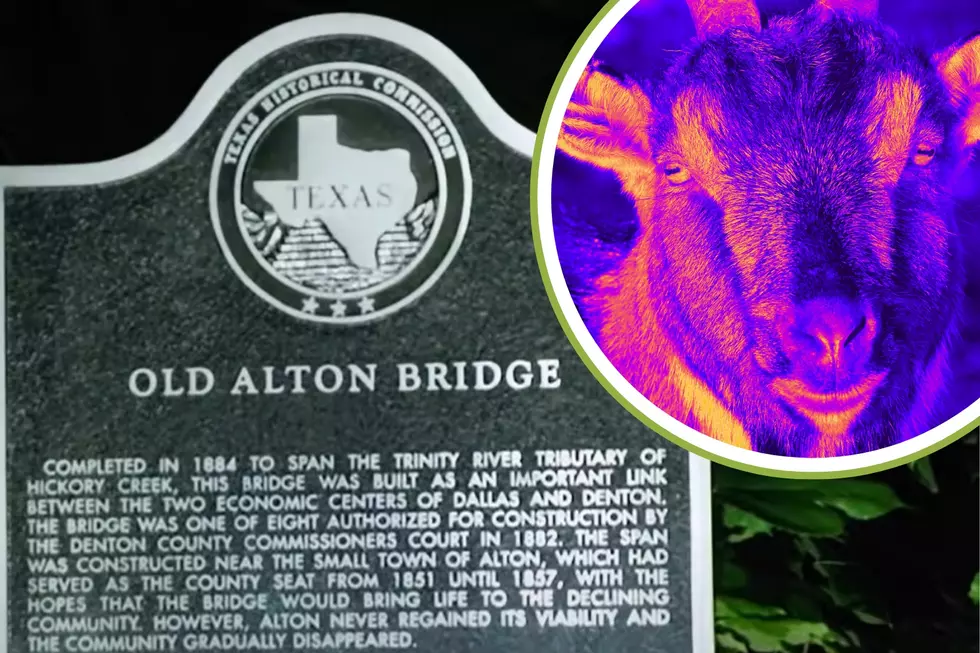
How ‘Fast Times at Ridgemont High’ Revolutionized Teen Movies
Fast Times at Ridgemont High, which was released in theaters on Aug. 13, 1982, remains one of the most realistic teen movies of the '80s.
That's largely because the film's source material was based on a true-to-life book written by Cameron Crowe, a journalist who had spent much of the '70s writing about and interviewing artists such as Led Zeppelin, the Eagles and Steely Dan for Rolling Stone. When Crowe was 22, however, he and his publisher had an idea for a book: The writer would find out what it was really like to be a kid by going undercover at a high school.
"I had attended Ridgemont Senior High in Redondo Beach, California, for a summer session seven years earlier, and those eight weeks had been sublime and forbidden days, even if it did mean going to a school in the summer," Crowe wrote in the introduction to the eventual book, also called Fast Times at Ridgemont High. "I normally attended a rather strict Catholic school, and there were many of us who believed that all our problems would be solved, all our dreams within reach if we just went to Ridgemont public high school."
Crowe targeted the 1979-1980 school year and proposed the idea to Ridgemont Senior High's principal, Dr. William Gray. "I wanted to attend classes at Ridgemont and remain an inconspicuous presence for the full length of the school year," Crowe wrote. "The object, I told him, was to write a book about real, contemporary life in high school." Convincing Dr. Gray to go along with his scheme was made easier after Crowe mentioned he had just interviewed "nice guy" Kris Kristofferson.
The resulting book focused on both the day-to-day mundanity and the drama, which was entirely the point. "It was my intention to write of the entire business–from academic competition to the sexual blunders–of teenage adulthood," Crowe said in the book's intro.
The movie preserved all of this. Framed by a school year, the plot revolves around a pair of siblings: brother Brad (Judge Reinhold), a hot-shot athlete who spends the entire year being humbled by his fast-food jobs and failing love life, and his younger sister, Stacy (Jennifer Jason Leigh), who's exploring her sexuality with shy Mark Ratner (Brian Backer) and others.
Watch a Scene From 'Fast Times at Ridgemont High'
Stacy and her best friend and pizza parlor co-worker, Linda (Phoebe Cates), dish about love and sex at the mall where Ratner's close friend, shady Mike Damone (Robert Romanus), scalps concert tickets. Along the way, everyone crosses paths with stoner surfer Jeff Spicoli (Sean Penn), who has a love-hate relationship with the stern teacher Mr. Hand (the late Ray Walston).
All of these characters still feel incredibly real and relatable, partly because the Fast Times universe doesn't try to buff up the characters or make them be perfect. Spicoli smokes weed at every chance he gets while, on a more serious tone, Stacy has to get an abortion and deal with a one-night-stand who doesn't exactly support her decision.
Fast Times was the first feature-length movie directed by Amy Heckerling, who would later go on to lens classics such as Clueless. However, she came on board after Crowe, who also wrote the movie's screenplay, had met with other directors, including David Lynch.
"He had a very wry smile on his face as I sat talking with him,” Crowe recently told Variety about the meeting. “He went and read [the script]. We met again. He was very, very sweet about it, but slightly perplexed we thought of him. He said this was a really nice story but ‘It’s not really the kind of thing that I do, but good luck.'"
Heckerling ended up being a perfect choice, especially since she had plenty of ideas about how to improve the screenplay, and wasn't shy about sharing them with Crowe. Among them was more emphasis on the mall, an element that dates the movie and adds to its sense of wistful nostalgia. "I love him to death. He’s a genius," Heckerling said of Crowe in the same recent Variety interview. "We started playing with different ideas. The book, I thought, it had just such an amazing wealth of material. I thought a lot more of it could be incorporated into the script."
Fast Times was co-produced by Art Linson and Irving Azoff—yes, the same Irving Azoff who's the long-time manager of the Eagles and Steely Dan. Unsurprisingly, the mogul also executive produced the movie's soundtrack. (Azoff's then-Front Line Management partner, Howard Kaufman, who passed away in January 2017, also had a hand in compiling the tunes.) That meant the music of several Azoff clients appeared both in the movie and on the double-LP soundtrack. In particular, Eagles members Don Henley, Joe Walsh, Timothy B. Schmit and Don Felder all have solo songs appear, while a prom band performs the band's "Life in the Fast Lane." Stevie Nicks' "Sleeping Angel," as well as Jimmy Buffett's "I Don't Know (Spicoli's Theme)" also appear.
These classic rock-leaning nods are no accident. In a retrospective piece, IndieWire notes that Fast Times At Ridgemont High soundtrack was initially supposed to hew toward '70s rockers—and Heckerling disagreed. "Being young as I was at the time, I really wanted a new, edgy '80s music soundtrack," she said in the book Breaking In. "I wanted Fear, Oingo Boingo, the Go-Go's, the Talking Heads, and the Dead Kennedys. I was one of those obnoxious teenagers that thought that the music I liked was great and everything else sucked."
In particular, Heckerling noted that successfully petitioning for Oingo Boingo's "Goodbye Goodbye" to be in the film "was a big fight. But I had to make some compromises and put in some songs that I didn’t like at all." Still, the mix of current and seasoned artists worked, especially because it reflected the musical shifts happening in the early '80s, as classic rockers attempted to figure out where they fit into the burgeoning new wave scene. No wonder the soundtrack is also heavy into AOR, highlighted by the Ravyns' "Raised on the Radio," Sammy Hagar's "Fast Times at Ridgemont High," Quarterflash's "Don't Be Lonely" and Billy Squier's "Fast Times (The Best Years of Our Lives)." (In a what-could-have-been moment, Todd Rundgren recorded a song called "Attitude" for the movie, but it wasn't used.)
Watch a Scene From 'Fast Times at Ridgemont High'
In general, however, classic rock is a constant presence for the characters at Fast Times at Ridgemont High. Fast-talking, unctuous Mike Damone makes a quick buck scalping concert tickets. Early in the movie, two kids approach him and ask, "You the guy with the Van Halen tickets?" Damone offers up two seats within the first 10 rows for $20 a pop, though they were $12.50 originally. "All the other scalpers are sold out," one buyer murmurs, which irritates Damone. "Did you call me a scalper? I perform a service here, and the service costs money."
He isn't always successful: He grumbles about Blue Oyster Cult not selling when a buyer asks about inventory ("I ate 34 pairs last time around. Where were you?") and, at the end, it's noted he was busted for scalping Ozzy Osbourne tickets. In his most memorable scene, however, he tries to impress a girl by singing Cheap Trick songs. To this day, the real-life band uses audio of that scene during its concert intros.
Watch a Scene From 'Fast Times at Ridgemont High'
Stacy in particular has a poignant, fitting soundtrack following her around. The first day of school finds Tom Petty and the Heartbreakers' "American Girl" playing while she walks down the hall. Jackson Browne's aching "Somebody's Baby," meanwhile, recurs during multiple Stacy scenes, including when she sneaks out of her house and loses her virginity to a guy named Ron Johnson. In one of Fast Times' most memorable moments, the Cars' "Moving in Stereo" plays during a scene where Brad fantasizes about making out with a topless Linda, who had just emerged from the pool.
However, in other places, the classic rock and new wave nods are subtle—Damone has posters of the B-52s, Elvis Costello, the Rolling Stones' Tattoo You and Devo on his bedroom wall, while Brad is wearing a Bruce Springsteen shirt in the scene where he's working at the Mi-T-Mart—or hilarious. Over the end credits, Spicoli's future is revealed: "Saved Brooke Shields from drowning. Blows reward money hiring Van Halen to play his birthday party"
Stacy and Linda make gossipy jabs about the girls in their high school that look like Pat Benatar—headbands, lycra pants, spiky hair and all. Later, Damone shares his "five-point plan" for a date. "This is most important: When it comes down to making out, whenever possible, put on side 1 of Led Zeppelin IV." Cue them driving in the car with "Kashmir" (which is on Physical Graffiti, of course) on the stereo. And, if you blink, you'll miss Brad making eyes at Heart's Nancy Wilson in a convertible.
Fast Times at Ridgemont High's soundtrack crested at No. 54 on the Billboard album chart, but the movie only made $27 million at the box office. However, Crowe shared with Variety that the movie actually almost never even reached theaters. “What happened is somebody wrote a memo shortly before the movie was released," he recalls. "They wrote a letter to [Universal executives] Ned Tanen and Sid Sheinberg that said the future of the studio was in doubt if we are making movies like this high school movie." According to Crowe, Tanen stood firm, however.
"He stood up and said ‘I’m putting the movie out, but we’re cutting the theaters down to 200.’ But what happened is the weekend the movie came out, the kids who went to see it loved Sean Penn so much, the word got out that there was this movie with this character who wore checkerboard Vans, called the teacher a d--- and ordered pizza into the room. They started showing up.
"The studio never caught up to the demand to see it," he adds. "They were always scrambling to try and get into more theaters, but it never worked out until the movie came out on VHS and was a big hit."
Today, the movie is ubiquitous on streaming services and other formats. (Crowe's book, however, is much more difficult to find: Copies start at $125 on Amazon.) Fast Times at Ridgemont High paved the way not only for the soundtrack boom of the '80s, but also for other smart teen movies. According to Crowe, studio executive Sheinberg "did a post-mortem to find out how they had messed up" and missed seeing why the movie would resonate.
"Out of it came this desire to do more movies like Fast Times and I think the next thing that happened is that they gave John Hughes a deal and greenlit like three of his movies pretty quickly out of that," he told Variety. "[Fast Times] created a new cottage industry at Universal.”
The Best Rock Movie From Every Year: 1955-2018
More From 100.7 KOOL FM










